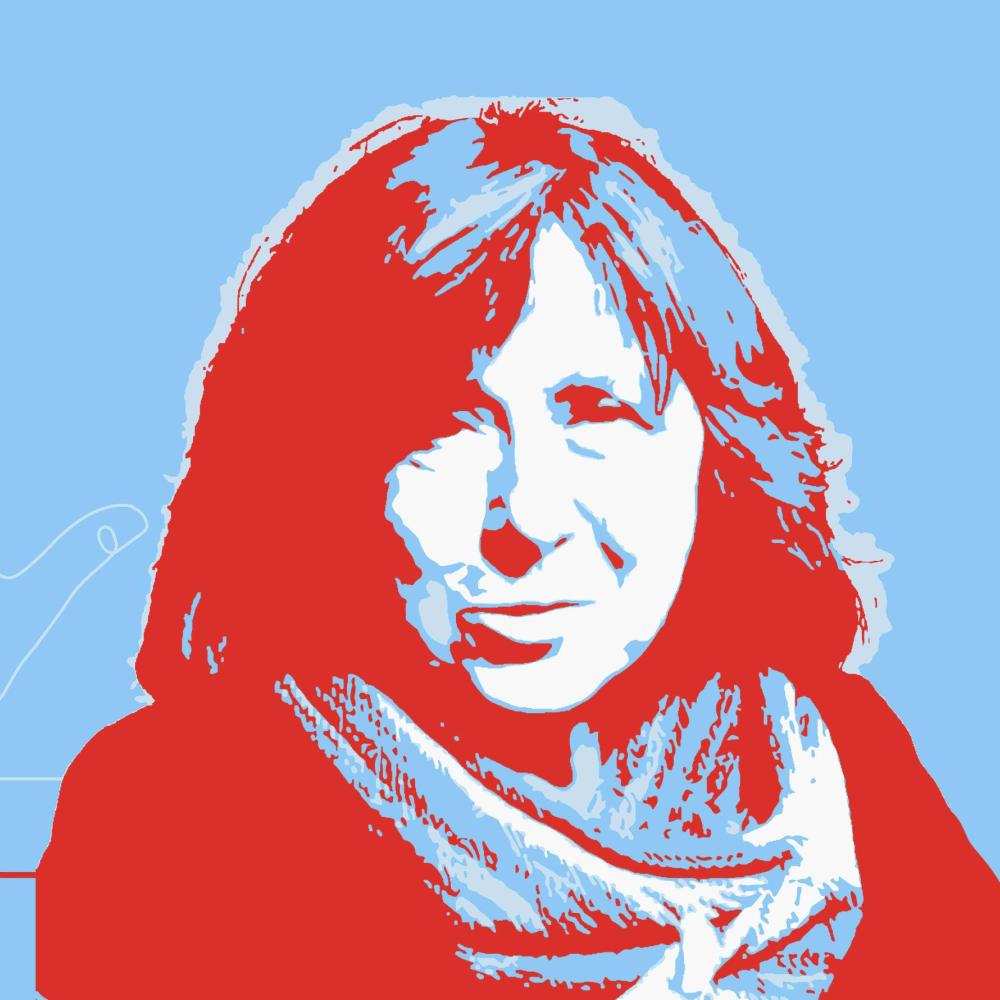

Svetlana ALEXIEVICH (°1948)
Profession: historian, journalist, author
Nationality: Belarusian
Why an honorary doctorate?
3 May 2021 Svetlana Alexievich receives the honorary doctorate of VUB for her contribution to the defence of freedom of expression and human rights.
A brave voice
By awarding an honorary doctorate to Svetlana Alexeyevich, VUB wishes to pay tribute to an author who chose to think, speak freely, and act for herself. An author, indeed, who gives a voice to those whose voices are often not heard and who, in her search for truth, does not hesitate, even at the risk of her own life, to seek out the uncomfortable facts and events that are banned from official historiography.
"My wish is to humanize history."
About her career
An ear for people
Svetlana Alexievich was born in 1948 in the Soviet Union, barely three years after the Second World War. In that war, the Soviet Union lost an estimated 10.7 million soldiers, the highest number of any warring nation. In her speech at the presentation of her Nobel Prize, she said that she did not remember any men from her village: no woman had a husband, a father, or a brother.
Alexievich grew up listening to the stories of those women. And she continued to listen, to the extent that she now calls herself a 'human ear', by analogy with Flaubert, who considered himself a 'human pen'. She was and is fascinated by how people speak, by the highly personal sound of their voice and what they say with it.
This fascination is reflected in the form of her books, which are based on interviews with ordinary people who tell how they try to live their lives on the margins of the great upheavals. Her work can therefore be read as a form of contemporary oral history of the Soviet Union and its successor states. She wrote about women in World War II, about ordinary Russian boys caught up in the Soviet-Afghan war, about what daily life was like during the break-up of the Soviet Union, and about the impact of the Chernobyl nuclear disaster.
Without comment
In her work, Alexievich lets people tell their stories, without intervening as an author or offering commentary. This, of course, punctures myths and illusions, as does the official version of the facts. As a result, she often came under fire from the authorities, both during the time of the Soviet Union, when she lost her job as a journalist, and later as a writer in Belarus, where her work could not be published.
The latter made it necessary for her to leave her country in 2000 and she stayed in Paris and Berlin for a long time. In 2011, she deliberately chose to return to Belarus and became one of the faces of the democratic opposition in the country.
With comments
In August 2020, Svetlana Alexievich intervened in the protests against the elections rigged by incumbent President Lukashenko. She took a leading role in the so-called 'Coordination Council', which united the opposition to Lukashenko. On a free radio station, she urged the president to resign.
Call for President Lukashenko:
"Leave before it is too late, before you plunge people into a terrible abyss, the abyss of civil war. Nobody wants to see blood. You only want power. And it is your hunger for power that requires bloodshed."
In September 2020, all members of the Coordination Council were arrested, expelled from the country, or disappeared without a trace after being kidnapped. Only Alexievich was still at liberty, presumably because the regime did not dare to deal with her because of her international prestige. Nevertheless, she became a victim of threats and, although she initially intended to stay in Belarus at all costs, she decided to leave for Germany in September 2020, with the intention of returning as soon as possible.
Mesmerised by the spoken word
As a child, she was enchanted by the stories of the women in her village. They always talked about their men, who had died in the war.
Voices that are heard
In her first book, Alexievich let women speak who fought in the Red Army. The book sold two million copies.
Exceptional performance
The English newspaper has named "The End of the Red Man", her latest book, the third best book of the 21st century.
What is an honorary doctorate?
VUB has awarded honorary doctorates every year since 1978 to personalities from the most diverse backgrounds who have made a remarkable contribution to their field and to society. From this solemn moment of recognition, they bear the honorary title of Doctor Honoris Causa of VUB.